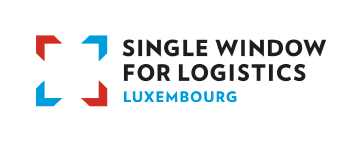Definition
Any substance or object which the holder discards, intends or is required to discard is considered as waste.
There are different types of waste (household waste, industrial waste, toxic or dangerous waste, biowaste, etc.) mentioned and identified by code in a European list of waste.
Some types of waste are subject to special processing (example: batteries and accumulators, used oils, used vehicles, packaging, electrical and electronic equipment).
Obligations and controls
The principle is that any initial producer of waste or any other holder of waste must themselves process it or have it processed by a trader, broker, establishment or company performing waste processing operations or by a private or public waste collector accredited by the Minister.
Holders of wastes must reduce to the extent possible movements of waste to processing facilities or sites located in other countries.
Cross-border movements of waste are subject to strict regulation and must be carried out without endangering human health or harming the environment. Depending on the type of waste (dangerous or not), countries involved and the processing operation (re-use or elimination), the movement may be prohibited.
All private or public establishments or enterprises that provide collection or transport of waste must send the wastes collected and transported to appropriate and duly authorized processing facilities.
Authorization from the Minister of the Environment is necessary for:
- establishments or companies providing collection and transport of waste as a business
- traders and brokers of waste
- establishments or companies that perform operations of elimination, preparation for reuse of waste or for recycling
- the implantation or operation of a facility or site used for elimination, preparation for reuse operations or for recycling, as well as substantial modifications of these facilities or sites
- importing waste from and exporting waste to countries that are not Member States of the European Union (EU) for purposes of reuse or elimination.
Requests for authorization must be submitted to the service Permits and Subsidies Office, Transport and trade of waste of the Environment Agency.
In addition, some establishments or companies (defined by the law) must be registered with the administration when they transport certain categories of waste in the context of specified activities as well as for transit or import of waste in Luxembourg.
The Environment Agency conducts regular inspections of the accredited players as well as controls on motorways.
Note: Some types of waste may also be considered as dangerous goods. In this case, the rules applicable to the transport of dangerous goods are also applicable.
Producers of waste, except for households, keep a chronological registry, indicating the quantity, the nature and the origin of the waste, the destination, the method of treatment applied to waste, and as necessary, the frequency of collecting and the means of transport of the waste and provide an annual report for the year lapsed to the Environment Agency providing the information contained in the registry in an aggregated form.
Related documents
In order to best limit nuisances, to provide for traceability and control of waste, authorized national (with some exceptions) and international movements are subject to prior notification or to an information procedure, for each movement, depending on the nature of the waste. Non-hazardous wastes are shown in the green list whereas hazardous wastes are shown in the orange list of the European Commission.
The following tables describe the obligations in terms of notification/information procedure by nature of waste, origin/destination and method of treatment:
|
Elimination |
Reuse |
||
|---|---|---|---|---|
Origin of waste |
Green list |
Orange list |
Green list |
Orange list |
Member state of the EU |
AUTHORISED With notification |
AUTHORISED With information |
AUTHORISED With notification |
|
OECD member |
AUTHORISED With notification |
AUTHORISED With information |
AUTHORISED With notification |
|
Party |
AUTHORISED With notification |
AUTHORISED With information |
AUTHORISED With notification |
|
Other countries |
PROHIBITED unless an agreement exists or in exceptional cases |
|||
|
Elimination |
Reuse |
||
|---|---|---|---|---|
Destination of waste |
Green list |
Orange list |
Green list |
Orange list |
Member state of the EU |
AUTHORISED With notification |
AUTHORISED With information procedure |
AUTHORISED With notification |
|
AELE country party |
AUTHORISED With notification |
AUTHORISED With information procedure |
AUTHORISED With notification |
|
OECD member |
PROHIBITED |
AUTHORISED With information procedure - With notification |
AUTHORISED With notification |
|
Non-OECD country party |
PROHIBITED |
Depending on the country Regulation EC/1418/2007 |
PROHIBITED |
|
Antarctica |
PROHIBITED |
|||
Other countries |
PROHIBITED |
|||
For all movements of waste subject to the notification requirement, one must underwrite a financial guarantee or an insurance contract intended to cover the estimated cost of transport, reuse or elimination and storage operations.
Related procedures
The following procedures available on the Guichet.lu website describe how to:
- apply for authorization for the trade or brokerage of waste
- apply for authorization for collection and transport of waste
- notification for national or international transport of waste.
Related Organizations
The service Permits and Subsidies Office, Transport and trade of waste of the Environment Agency issues permits for waste carriers, collectors of waste, waste traders and brokers. It is also in charge of managing the procedures for the notification of waste transfer and for the control of waste transports.


